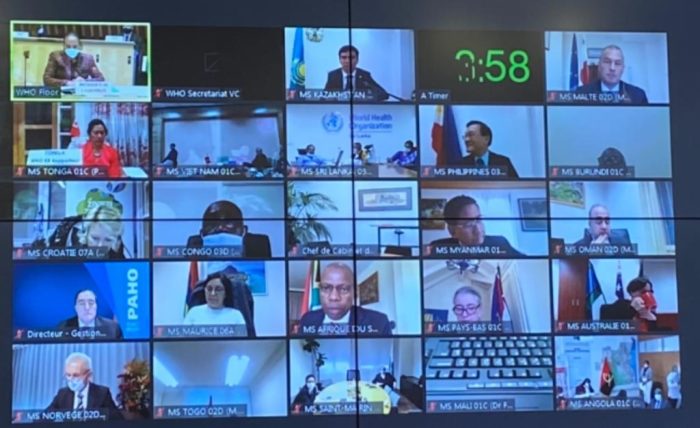NUR-SULTAN – Kazakhstan has taken all the necessary measures to prevent the spread of COVID-19 and to ensure that the local healthcare services are ready for an increase of cases, said Director of the Department of International Cooperation and Integration of the Kazakh Ministry of Healthcare Gulnara Mukhanova at the Nov. 9 meeting of Committee A as part of the virtual 73rd World Health Assembly.

This year, the World Health Assembly (WHA73) is being held in two parts due to the ongoing COVID-19 pandemic. The first virtual meeting was held May 18-19. The resumed WHA73 session will take place from Nov. 9-14.
Mukhanova also spoke about the situation with COVID-19 in Kazakhstan at the event.
At the legislative level, the Kazakh government introduced new rules to strengthen the powers of the chief state sanitary doctor regarding the introduction of restrictive measures and lockdown.
Predicting the number of new suspected or confirmed cases is vital for the ministry, noted Mukhanova. Due to this, the newly established working group is engaged in predicting the increase of active cases and prepare the necessary measures. A matrix to evaluate the epidemiological situation was also developed to strengthen or weaken restrictive measures.
The COVID-19 Control Center and Saqbol apps were launched to control the spread of the coronavirus infection.
The ministry is also developing a new Zertteu mobile app, which boasts three main functions – QR code scanning for visitors, passengers’ profiling and a monitoring system to track those who should be in home quarantine.
Kazakhstan has recently strengthened sanitary-epidemiological and migration control measures at the state border.
The authorities are working to ensure COVID-19 testing availability at all healthcare facilities. More than 3.6 million tests were performed. The laboratories perform more than 71,000 tests on average per day. The current test capacity (per 100,000 people) has almost doubled since July – from 213,000 to 370,000 tests per 100,000 of the population.
The special mobile groups monitor citizen compliance with restrictive measures nationwide.
In his opening speech, Director-General of the World Health Organization (WHO) Tedros Adhanom Ghebreyesus called for “leadership built on mutual trust and mutual accountability – to end the pandemic and address the fundamental inequalities that lie at the root of so many of the world’s problems.”
Ghebreyesus said that people might be tired of COVID-19. But COVID is not tired of preying on people. He reminded the citizens that “there are many countries and cities that have successfully prevented or controlled transmission with a comprehensive, evidence-based approach.”
At the same time, some countries as well as Europe and the Americas have now re-introduced restrictions to address the new wave of infections they are facing.
As of Nov.11, 117,904 confirmed cases and 39,357 pneumonia cases with COVID-19 symptoms were registered since March 13 in Kazakhstan. Some 1,899 people died.
According to the WHO, almost 50 million cases of COVID-19 have now been reported and more than 1.2 million people have died worldwide.

